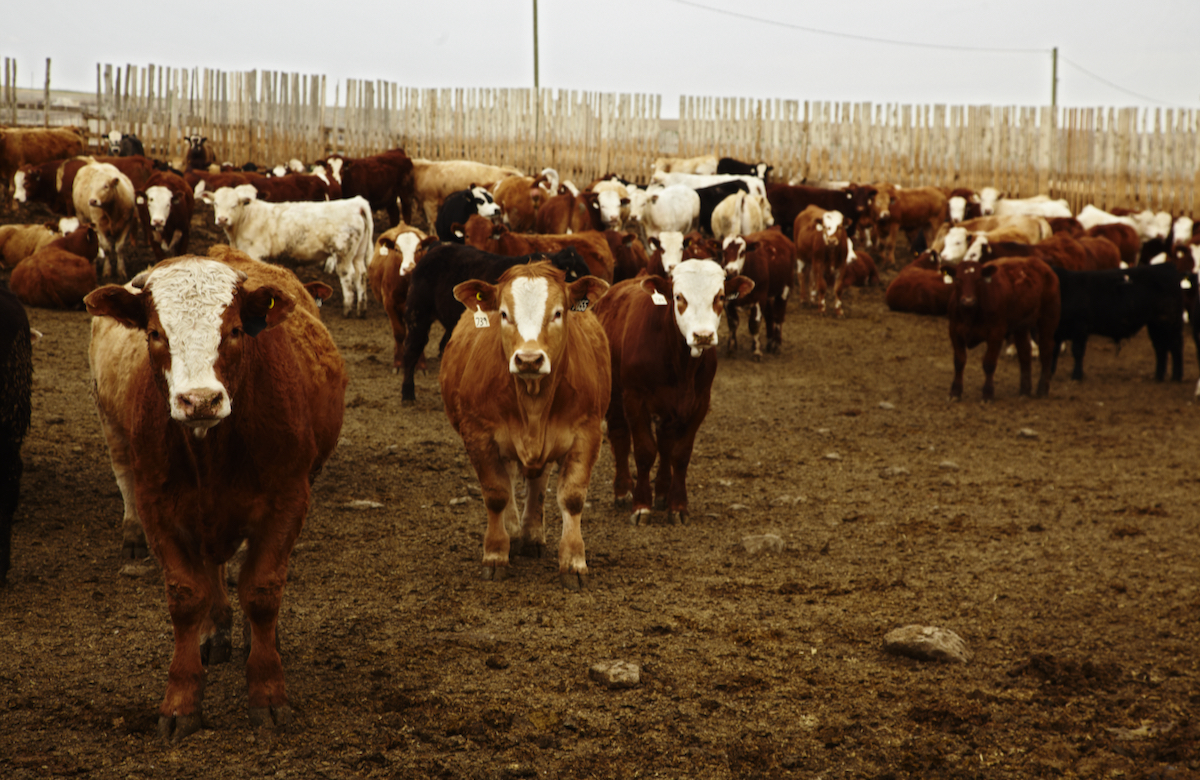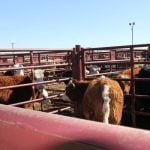Federal inspectors are investigating one of Canada’s biggest producers of frozen uncooked beef burger patties for the second time in three months, following a new recall Tuesday of burgers made there for the Safeway grocery chain.
The Canadian Food Inspection Agency said Wednesday it has an investigation underway at the Cardinal Meat Specialists plant at Brampton, Ont. after samples of Gourmet Meat Shoppe and Butcher’s Cut brand burgers, both made there for Canada Safeway’s stores in Western Canada, Ontario and the Northwest Territories, turned up positive for E. coli O157:H7 bacteria.
Read Also

U.S. livestock: Cattle at fresh highs, hogs weaken
Cattle futures on the Chicago Mercantile Exchange climbed to fresh highs on Tuesday, as tight supplies and the ongoing closure…
CFIA’s traceback investigation is focused on Cardinal’s records, to identify ingredients used in the production of the recalled burgers.
The agency said its tested samples were taken from retail stores in the West and Ontario in response to two cases of E. coli-related illness, which public health officials reported Feb. 13 to CFIA, "based on the food histories of the people that became sick."
Cardinal, as a "responsible precaution," decided to recall all products produced on the same line and the same day as the burgers that tested positive, CFIA said Wednesday, noting it’s still waiting on "definitive test results to determine if the cases of illnesses are conclusively linked to the recalled burgers."
Products recalled Tuesday include The Gourmet Meat Shoppe brand Big + Juicy Burger and Prime Rib Burger, in 1.13-kg and 907-g packages respectively, and The Butcher’s Cut Pure Beef Patties in packages of 10, 20 and 40 patties, all with best-before dates of Aug. 14, 2013 and produced at "EST 752," the Brampton plant.
CFIA on Wednesday noted Cardinal has also now recalled a Cardinal-brand frozen burger product "produced for the hospital, restaurant and institutional level." The plant is also eligible to export to the U.S. and Philippines, but CFIA said no products from the recalled lot were exported.
The Brampton plant’s last CFIA probe for O157:H7 contamination came in December 2012, when Butcher’s Choice and Cardinal brand burgers made there were recalled between Dec. 12 and 15, after samples were linked to a "small cluster" of E. coli-related illnesses in Ontario and Alberta.
Work is now underway to "assess if and how these two situations may be linked," the agency said Wednesday.
December’s investigation was called off later that month, as CFIA found the Brampton plant to be "following appropriate food safety controls" and the agency had otherwise "exhausted all avenues of inquiry" looking for E. coli in the plant’s domestic and overseas sources of beef ingredients and spices.
"Not necessarily"
Cardinal, CFIA emphasized Wednesday, gets its burger ingredients from "a variety of other suppliers," so its involvement in a frozen burger recall "does not necessarily signal a problem in the Cardinal… facility itself."
Furthermore, CFIA said Wednesday, finding O157:H7 in beef processing plants "is not uncommon and even the best food safety controls cannot eliminate all potential opportunities for contamination."
While a new investigation will "assess how and where contamination may have occurred," it’s possible that "a single, definitive source may not be identified."
Requirements are in place in Canada to test raw beef used in the production of ground beef, CFIA said Wednesday, and since the Brampton plant buys raw beef materials from other suppliers, its incoming materials are already tested for O157:H7.
CFIA runs sampling and testing of ground beef on a monthly basis at all federally-registered meat processors, but those that only receive product for further-processing — that is, grinding — aren’t required to test, as the incoming materials are already tested for O157:H7.
While E. coli bacteria in ground beef are destroyed by cooking the meat to at least 71 C, "there are risks associated with cross-contamination during cooking and the potential for bacterial spread by infected persons," so products that may contain E. coli are recalled as a precaution.
Cardinal, owned and operated by the Cator family, began producing ready-made burgers for restaurants and small retailers at Mississauga in 1966 and was making 3.6 million patties per week by 2010.
The company launched "Butcher-style" burgers in 2008, after becoming the first beef processor in North America to adopt the equipment it uses for its "Natural Texture" forming process.
According to CFIA, Cardinal’s Brampton plant today has 55 employees plus three CFIA inspectors to cover the plant’s day, morning and night shifts.
Related story:
E. coli probe into frozen burgers hits dead end, Dec. 25, 2012
















